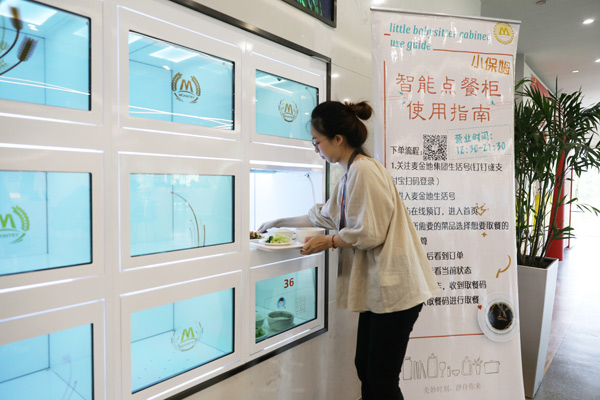 |
|
A diner at Alibaba's Xixi park in Hangzhou takes food from an AI order counter. [PHOTO BY NIU JING/FOR CHINA DAILY] |
Ma Yiwen, 33, brought nearly a dozen colleagues with her.
"We are all foodies and we use our lunchtimes to try good food near our office. The idea of a robot delivering food to our table is very innovative so we wanted to see it for ourselves," she said.
The restaurant says automation helps keep costs down, an additional lure for 20-year-old customer Ma Shenpeng, who comes once a week.
"Normally for two to three people, a meal costs about 300-400 yuan, but here, this table of food is just over 100 yuan," he said.
Chinese AI advocates predict robots will someday perform a range of mundane duties as living standards rise, from delivery to sweeping floors and providing companionship.
But it's a delicate issue for Chinese policymakers due to the potential for human job losses, and the government is in the midst of a long-term push to develop the country's service industry partly as a job creator, as manufacturing increasingly becomes mechanized.
Wang Hesheng, a robotics professor at Shanghai's Jiao Tong University, said the cost of robots remains too high for widespread consumer use and that many companies are merely jumping on the government's high-tech bandwagon.
However, Wang noted that the use of robotics could spread if China's labor costs continue to grow, concluding: "Maybe when labor costs rise higher and higher, robots will balance out humans".